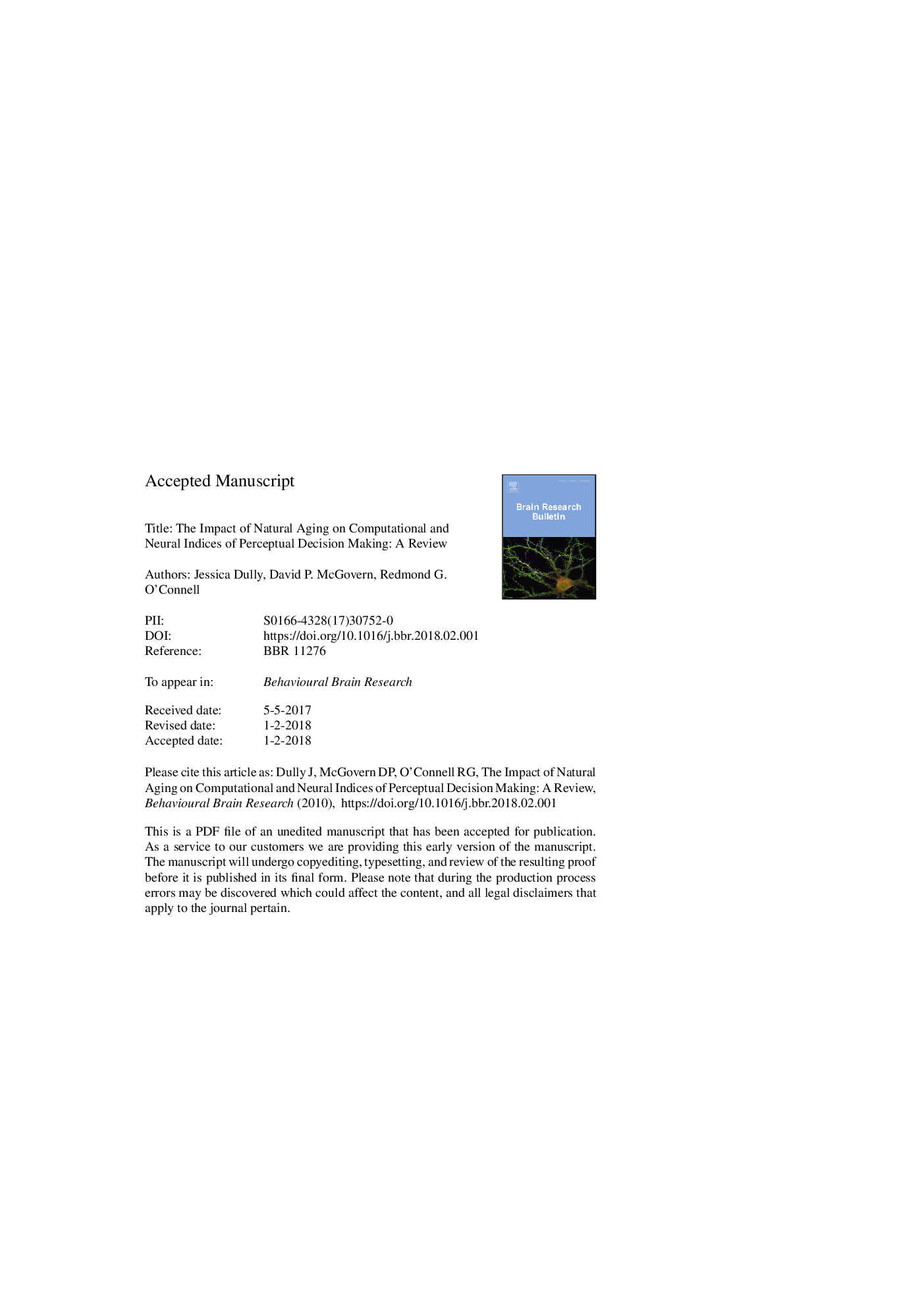| Article ID | Journal | Published Year | Pages | File Type |
|---|---|---|---|---|
| 10223049 | Behavioural Brain Research | 2018 | 35 Pages |
Abstract
It is well established that natural aging negatively impacts on a wide variety of cognitive functions and research has sought to identify core neural mechanisms that may account for these disparate changes. A central feature of any cognitive task is the requirement to translate sensory information into an appropriate action - a process commonly known as perceptual decision making. While computational, psychophysical, and neurophysiological research has made substantial progress in establishing the key computations and neural mechanisms underpinning decision making, it is only relatively recently that this knowledge has begun to be applied to research on aging. The purpose of this review is to provide an overview of this work which is beginning to offer new insights into the core psychological processes that mediate age-related cognitive decline in adults aged 65 years and over. Mathematical modelling studies have consistently reported that older adults display longer non-decisional processing times and implement more conservative decision policies than their younger counterparts. However, there are limits on what we can learn from behavioural modeling alone and neurophysiological analyses can play an essential role in empirically validating model predictions and in pinpointing the precise neural mechanisms that are impacted by aging. Although few studies to date have explicitly examined correspondences between computational models and neural data with respect to cognitive aging, neurophysiological studies have already highlighted age-related changes at multiple levels of the sensorimotor hierarchy that are likely to be consequential for decision making behaviour. Here, we provide an overview of this literature and suggest some future directions for the field.
Related Topics
Life Sciences
Neuroscience
Behavioral Neuroscience
Authors
Jessica Dully, David P. McGovern, Redmond G. O'Connell,
